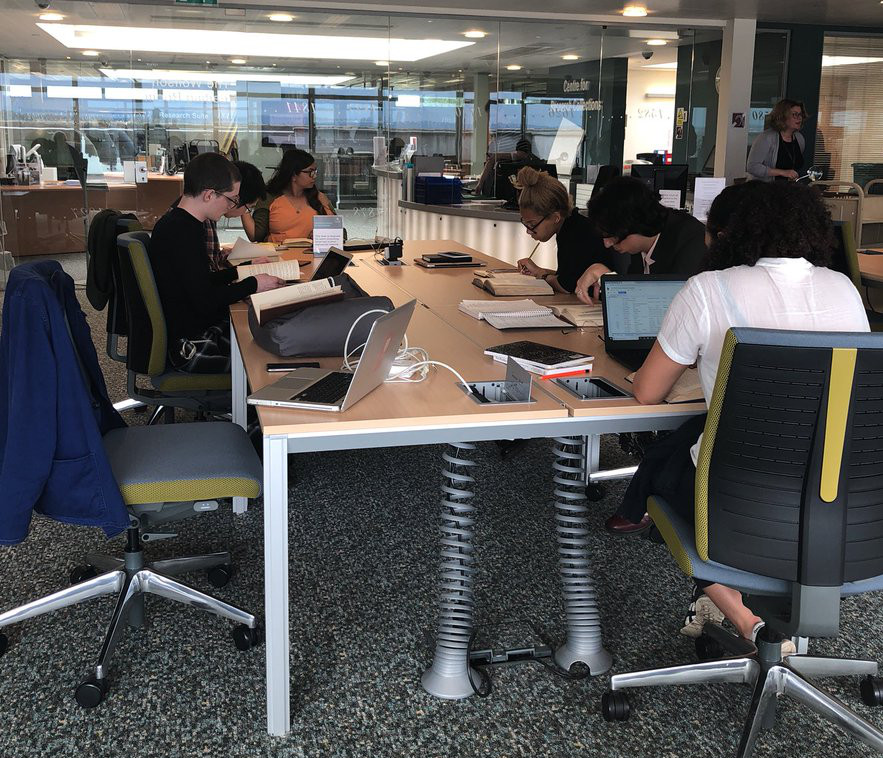
In this post, Hannah McGurk, a second year student studying German and English Literature, showcases a student-led, research project – UncoverEd – which aims to uncover the history of University of Edinburgh alumnae from Africa, Asia, the Caribbean and Americas from the 1780s to the 1980s…
UncoverEd is a collaborative and decolonising research project, funded by Edinburgh Global, which aims to situate the ‘global’ status of the University of Edinburgh in its rightful imperial and colonial context. Led by PhD candidates Henry Mitchell and Tom Cunningham, the team of eight student researchers are creating a database of students from Africa, the Caribbean, Asia and the Americas from as early as 1700, and writing social histories of the marginalised student experience. The aim was to produce at least one biography each of a ‘notable’ alumnus, leading up to a website and exhibition in January 2019.
The research group from a variety of degree levels and subject areas came together in Welcome Week September 2018 after a round of applications. We discussed the plan for the week, and Henry led us through the preliminary research which focused on the history of migratory students chronologically. We all chose a geographical area to focus on in our research, such as China, West Africa or the Caribbean, and began looking through The Student archive as a main source, hoping to hear from students of colour directly.

Some of our early research proved really fruitful. We found accounts and evidence of the Indian Students Association and Afro-West Indian associations, dating back as early as 1883. We also found a number of notable alumni who had won academic prizes and sporting awards, such as Jesse Ewing Glasgow (1858-60). However, The Student was frustrating to us in many ways. Many names were anglicised, making it difficult to tell whether the student was from a minority ethnic background, and this was particularly problematic concerning students from colonised countries, such as South Africa, where the student would be registered as ‘international’ without much differentiation.
Many students of colour also did not complete full degree programmes or graduate due to a variety of factors, and this was especially true of many of the women we found. The Student was also primarily concerned with the activities and lives of a small number of often elite students, often marginalising the experiences of students of colour, as we also found with the majority of sources from the time. The newspaper was also very much of its time in its use of colonial and imperial rhetoric, discussing the British Empire as a positive force, as well as dismissing reports of racial violence. This changed as we got to the 1960s and 70s, as it became much more radical, but equally conservative and borderline fascist in the 1980s. Overall, the act of reading through several decades’ worth of The Student was mentally and emotionally exhausting for some of us.
Towards the end of the week, and over the course of the semester, we moved on to focusing on our chosen figure, and deepened our research using resources from the Library, National Library of Scotland, biographies, dissertations, social media, interviews, and local academics to name but a few. We also pulled together some of the more disparate elements of the Student research to create social histories, such as of housing crises over time, the Colour Bar in Edinburgh, and diaspora politics. We hope to continue this line of research in the New Year.
We believe this work is important because the University has a long and largely under-interrogated ‘global’ history with deep imperial and colonial implications, many of which continue to the present day. The University failed, until very recently, to recognise any student of colour as a ‘Notable Alumni’, and this is just the tip of the iceberg of their erasure. In line with the Universities Studying Slavery project, and Glasgow University’s recent research and reparations plans, we hope to encourage the University of Edinburgh to reflect on its imperial past and how it played a part in Edinburgh’s status as a ‘global’ university.
The UncoverEd website will be launched later 27 November 2018, and the exhibition will be held in the Crystal Macmillan building in January 2019.


